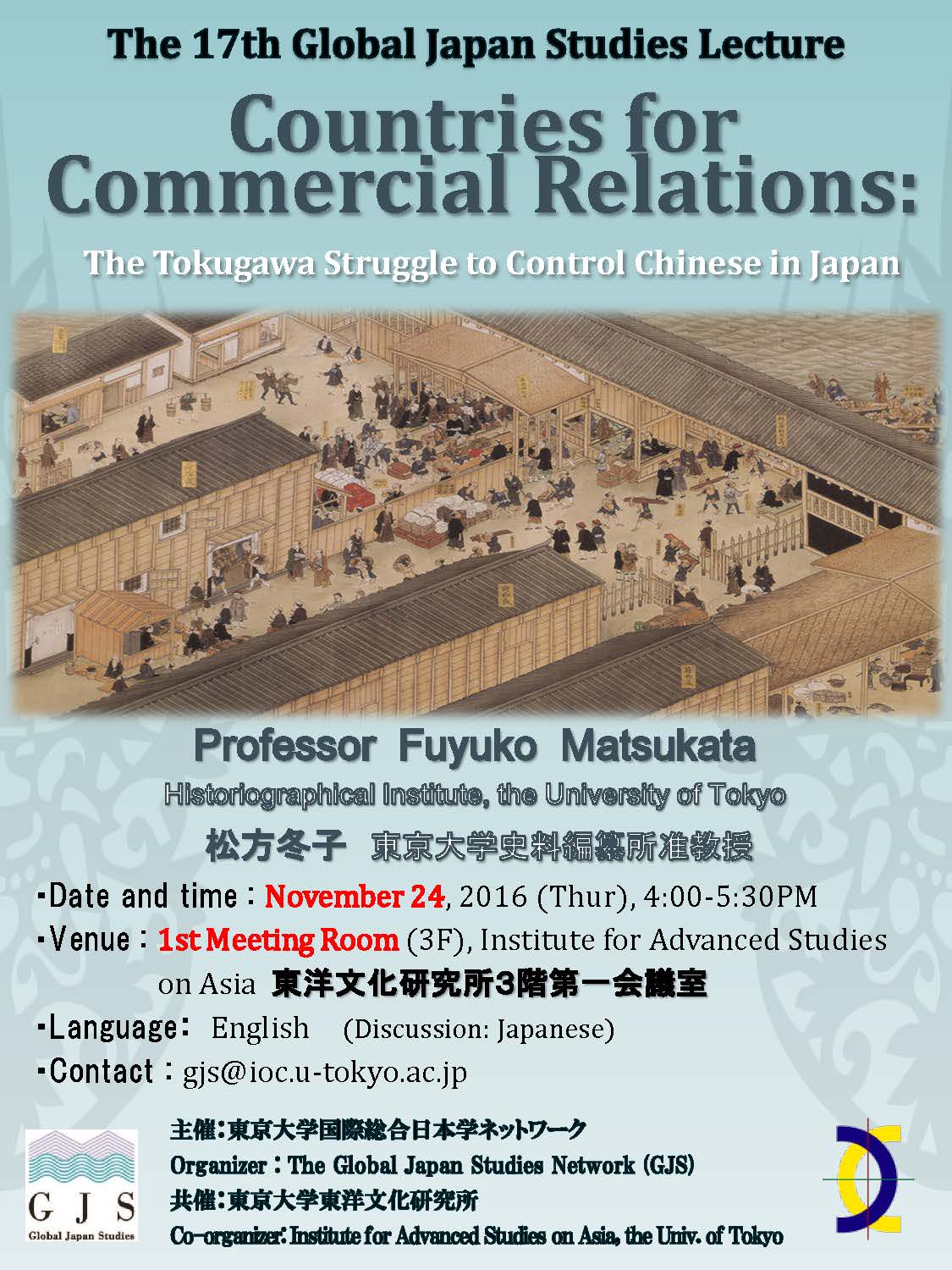The 17th GJS LectureCountries for Commercial Relations: The Tokugawa Struggle to Control Chinese in Japan
| Date and time: | Nov. 24, 2016 (Thur.), 4:00-5:30PM |
|---|---|
| Venue: | First Meeting Room (3rd Floor), The Institute for Advanced Studies on Asia, University of Tokyo |
| Speaker: | Matsukata Fuyuko (Associate Professor, Historiographical Institute, the University of Tokyo) |
| Language: | English |

Abstract: The purpose of my talk is to describe how the Tokugawa government tried and succeeded to control Chinese inhabitants in the Japanese archipelago. I will survey the historical process from 1600 to 1685.
When the shogunate failed to open a diplomatic channel with Ming China around 1610, it decided to issue read-seal passes to control existing trade, passes which accompanied “state letters (kokusho国書)” sent to authorities in Southeast Asia. In the 1620s and 1630s, the shogunate erected an anti-Christian policy that paralleled its process of forming “Tokugawa subjects” in Japan. In such a condition, the Chinese diaspora posed of a problem because the Tokugawa government had not maintained direct relations with the Ming government. The shogunate categorized Chinese domiciled in Japan as “Tokugawa subjects” just like Japanese people. On the other hand, it ordered Chinese not- permanently domiciled in Japan to leave Japan and prohibited them from returning to live. The Tokugawa allowed Chinese, including people from Southeast Asia, to only visit Nagasaki to trade on the condition that they obeyed the anti-Christian policy.
Their status, which I call “pseudo-subjects,” was applied also to the Dutch, or the VOC officials. Coincidentally, the shogunate banned Japanese junks from going abroad and it stopped issuing red-seal passes in 1635. It started to accept Southeast Asian junks, classifying them under the category of “Chinese.” The status of “pseudo-subject” or “correspondence-less relations” proved easier not only for the Japanese authorities but also for foreign traders. After the Ming-Qing transition, the Zheng family in Taiwan sent letters to the Tokugawa shogun. At this stage, the shogunate was still considering if the authority behind the Chinese coming to Japan was held by the Qing court or the Zheng family. After fall of the Zheng family, the Tokugawa government issued passes for entering the Nagasaki port based on a series of “New Trading Regulations正徳新例.” When the Tokugawa government recognized acceptance of the passes by the Qing court, the foreign policy of the shogunate was codified until the end of the Edo period.
Co-organizer: Institute for Advanced Studies on Asia, the University of Tokyo
Contact: gjs[at]ioc.u-tokyo.ac.jp



